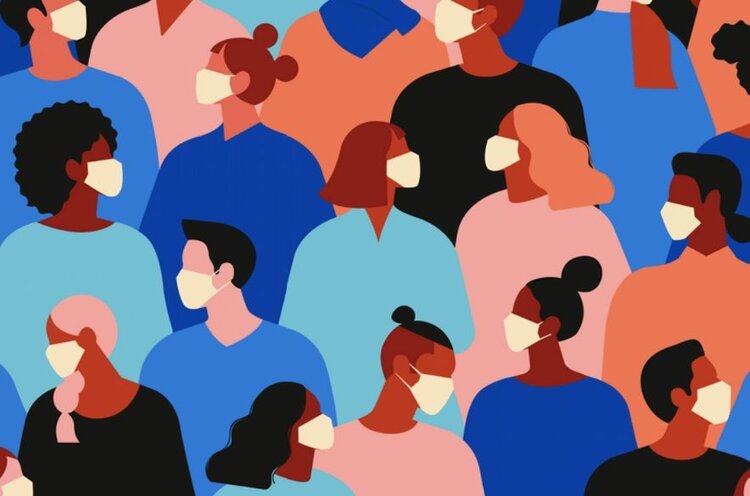“To feel the problems of our world is to know its suffering, but this requires compassionate ‘response-ability.’ If we fail to address the world’s collective trauma with clarity and compassion, we imperil the survival of our children and our children’s children—and countless other species.” – Thomas Hübl
As I was standing at my gate in a packed airport on a layover in Phoenix, Arizona, I noticed that only a couple of people getting ready to board our plane were wearing a mask besides myself. I am not shocked or upset at people’s decision not to wear one. Wearing it was a personal choice – and at times the soreness I felt behind my ears from the tightness of my KN95 made me want to take off it for a bit. I still could not help but dwell on the question that, after everything that’s happened and still going on, what is the difference between those who choose to wear one and those who don’t? More specifically, how differently has everyone processed the last 2.5 years?
Ever since the lockdowns ended, it has been a slow process being reintroduced to the idea of being shoulder-to-shoulder with strangers in an enclosed space for a long period of time. With the introduction of vaccines, boosters, and variants, every decision to go out and engage with the world has involved a continuously changing amount of risk assessment based on loosely associated factors and statistics that make my head spin. This whole process has been confusing and it would be disingenuous if I said that even as a public health professional – I had a perfect grasp on what the right thing to do is all the time.
What I do know is that over 92 million cases of Covid-19 have resulted in over 1 million deaths in the United States since the start of the pandemic. I know this pandemic has had a disproportionate impact on BIPOC, low-income, and immigrant communities who are already facing several health and socioeconomic disparities. Alongside the biological threats that come with the pandemic, we are bombarded with news about political turmoil, social unrest, and systemic violence that has been exacerbated by this virus. We are also experiencing the impact of the economic downturn that is a result of lockdowns and restrictions with closed down businesses, limited employment opportunities, and global shortages of resources. The lingering effects of this moment in history have infiltrated many aspects of our lives and have created so many permanent changes that we have to accept. Considering all this, it’s understandable that people have a strong desire to get things back to normal and put this whole part of history behind them. However, as society tries to put distance between now and the most isolated parts of the pandemic, I wonder, is the impact this has had on people as a collective being brushed under the rug? Are we neglecting to accept and address the lasting impact that this outbreak has had on our mental health? Have we given ourselves the opportunity to process and grieve what has happened to us in the past couple of years?
As part of a project I was involved in at HOP, I helped facilitate a webinar training where we discussed the topic of collective trauma, stress, and grief that arose from the COVID-19 pandemic with an audience of mostly Latinx community health workers who primarily serve farmworker populations. While we prepared some materials to help define collective trauma and how it can manifest in a community, we created space for webinar attendees to open up and provide input about the experiences they’ve had during this time. In my experience organizing different webinars, at times it can be difficult to encourage audience participation. However, at this moment, participants had no problem opening up to complete strangers about the challenges they have faced during the pandemic and other parts in their lives that have caused stress and grief.
Even though the topics could be grim, witnessing the support and catharsis that came from these moments brought me a sense of comfort. In my experience, immigrant Latinx communities often do not have the time, resources, or space to process our condition and create opportunities to discuss these parts of our lives. Oftentimes, I feel like the socio-economic challenges our community has faced over time has conditioned us to avoid these conversations because our relationship with the economy and labor market makes certain struggles seem like an inevitable part of life. I was inspired by the space we created for the participants and I have a strong desire to create more opportunities like this in other communities I am a part of. More importantly, I hope that addressing these events as a community can add a heightened sense of compassion into our collective consciousness and foster stronger ties between each other from a unified sense of perseverance.
By Pablo Cuadros, Project Manger, for HOP’s series of monthly staff blog posts
